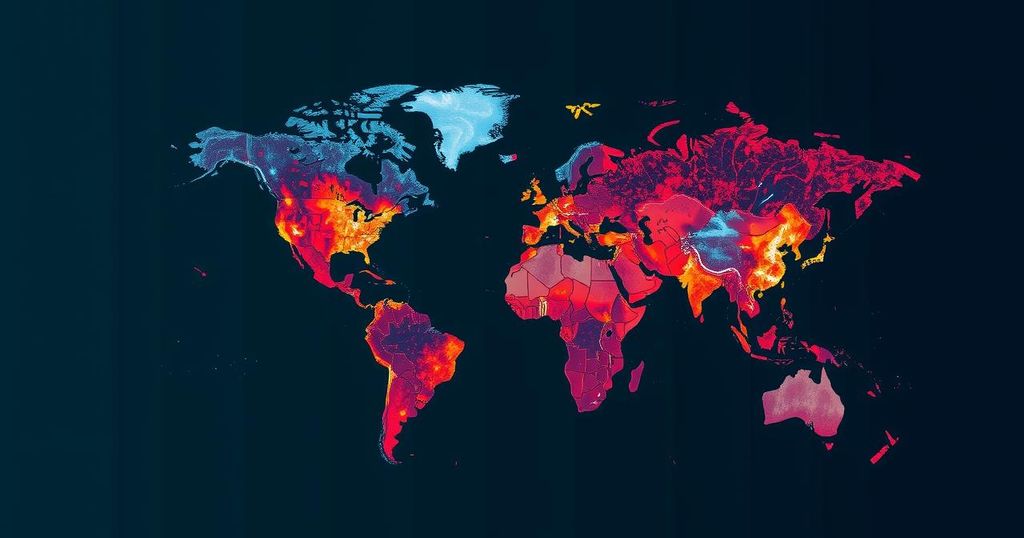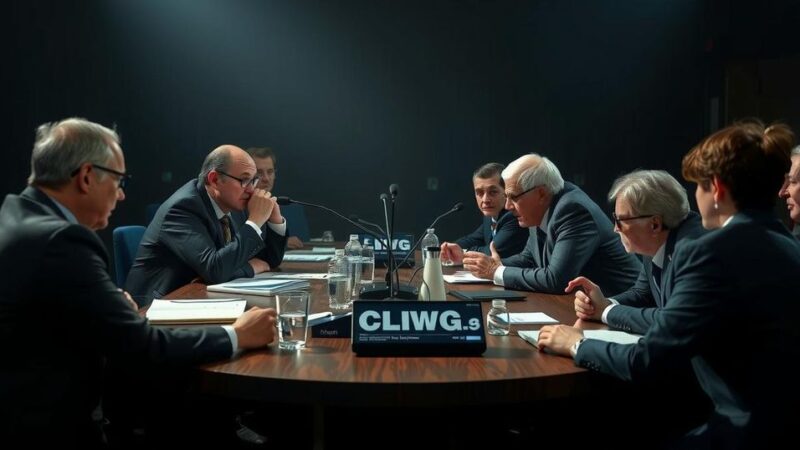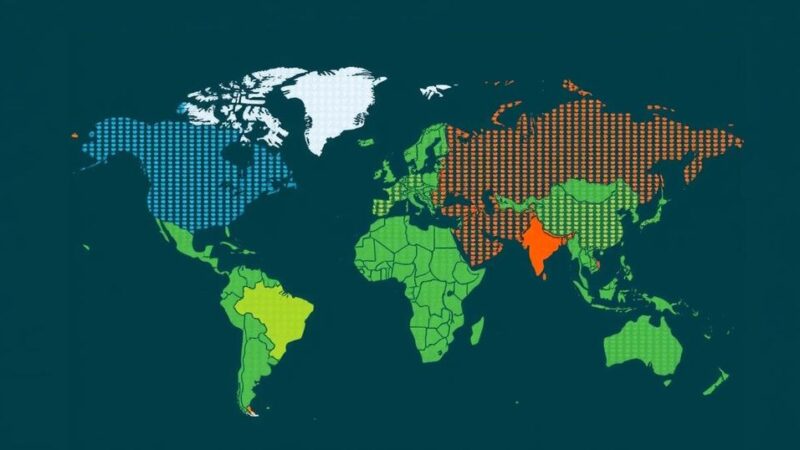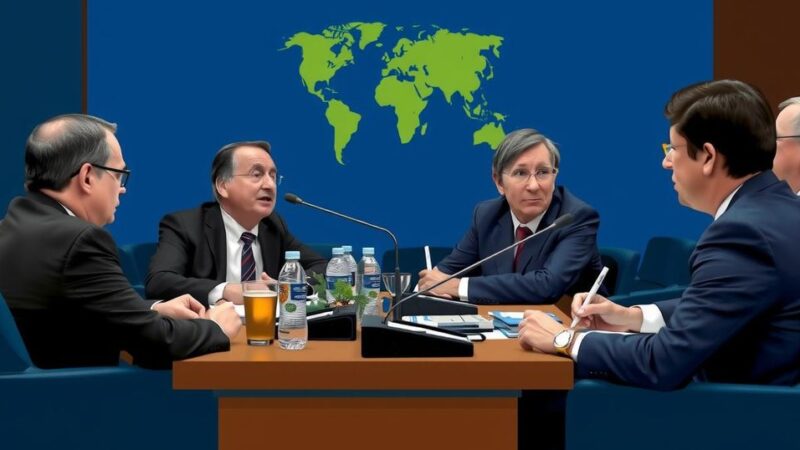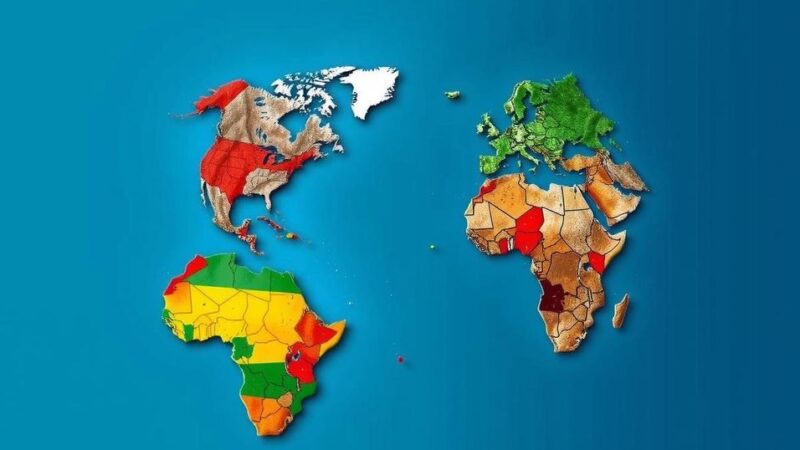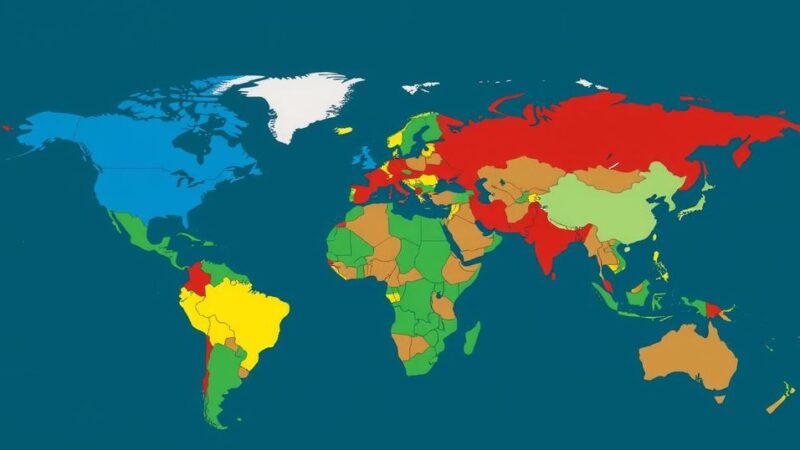A severe funding gap is jeopardizing global climate talks as the world risks overheating by 3.1 degrees Celsius. The UNFCCC lacks $61.53 million for its 2024 budget, with leading economies like the U.S. and China yet to meet their financial commitments. This shortfall is prompting operational cutbacks and threatens crucial climate negotiations, as countries must urgently address emissions to avert catastrophic warming. The upcoming COP29 summit is vital for strategizing necessary action on greenhouse gas reductions.
The imperative for international climate negotiations is at risk due to a significant funding gap, as global temperatures threaten to rise by over 3 degrees Celsius by the century’s end. Recent reports indicate that the United Nations Framework Convention on Climate Change (UNFCCC), which leads climate discussions among nearly 200 nations, is lacking at least $61.53 million for its 2024 budget. This shortfall constitutes almost half of the funds necessary to facilitate global efforts to reduce greenhouse gas emissions and oversee accountability among nations during summits. Notably, despite the approval of the budget by member nations and acknowledgment of financial contributions, the United States and China—two of the world’s largest economies and greenhouse gas contributors—have yet to satisfy their financial commitments. As of October, the United States owes $7.9 million to the UNFCCC core budget, while China still owes $6.1 million. Although representatives from both nations have indicated intentions to fulfill these obligations by year’s end, no precise timeline has been established. The funding shortage has led to operational cutbacks at UNFCCC, including reduced hours at its Bonn headquarters and the cancellation of crucial regional climate events that previously secured substantial investments for sustainable initiatives. The current financial challenges are severely undermining not only ongoing negotiations but also affect the participation of diplomats from lower-income countries, jeopardizing discussions surrounding vital climate finance issues. Compounding these financial concerns, the UN Emissions Gap Report 2024 warns of a dire future where unmitigated emissions could lead global temperatures to soar to levels exceeding 3.1 degrees Celsius. Immediate actions are deemed essential to bridge the emissions gap that threatens global climate stability. UN Secretary-General António Guterres cautioned that the planet is “teetering on a planetary tightrope,” urging leaders to either take decisive action or risk a catastrophic climate crisis. Historically, global efforts to curb emissions have faltered, highlighted by a recent uptick of 1.3% in greenhouse gas emissions between 2022 and 2023, totalling 57.1 gigatonnes of CO2 equivalents. To avert exceeding 1.5 degrees Celsius of warming, nations would need to commit to cutting 42% of their emissions by 2030 and achieve 57% reductions by 2035, underscoring the urgent need for concrete strategies during the upcoming COP29 summit in Baku, Azerbaijan. Inger Andersen, Executive Director of the United Nations Environment Programme, emphasized the critical nature of the impending discussions, calling for heightened action to achieve necessary emissions reductions, stating, “Every fraction of a degree avoided counts in terms of lives saved, economies protected, damages avoided, biodiversity conserved and the ability to rapidly bring down any temperature overshoot.” Without significant funding and commitment to emissions reductions, global climate goals will remain perilously unattainable, thereby placing the future of the planet at grave risk.
The international community faces an alarming funding deficit impacting the United Nations Framework Convention on Climate Change’s efforts to combat climate change. As countries collectively strive to limit global warming and prepare for future climate negotiations, the urgent need for adequate financing and unified action has never been greater. Reports indicate that the financial contributions from leading economies, particularly the United States and China, are falling short, raising concerns about the efficacy of future climate talks. This backdrop of funding shortages and rising emissions underscores the necessity for immediate and substantial reductions in greenhouse gas emissions to avert catastrophic warming.
The current funding gap in climate negotiations poses a significant threat to global efforts aimed at curbing emissions and achieving climate stability. As prominent nations like the United States and China delay fulfilling their financial commitments to the UNFCCC, the probability of reaching crucial climate goals diminishes. The upcoming COP29 summit represents a pivotal opportunity for countries to forge a path toward meaningful action and financial commitment, emphasizing the dire need for cooperation in combating climate change and ensuring the sustainability of our planet.
Original Source: www.asiafinancial.com
